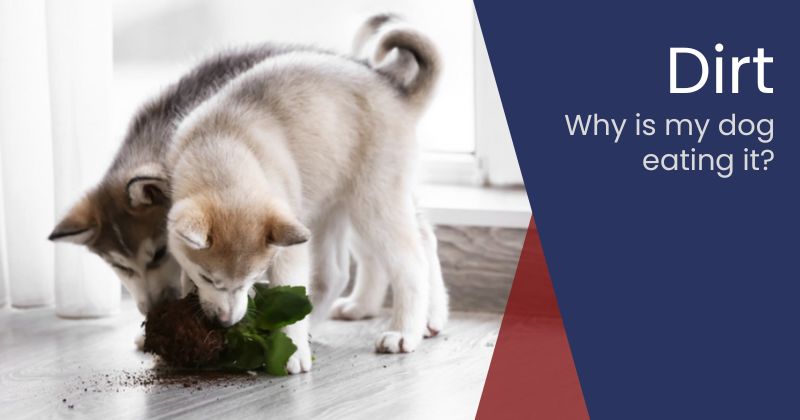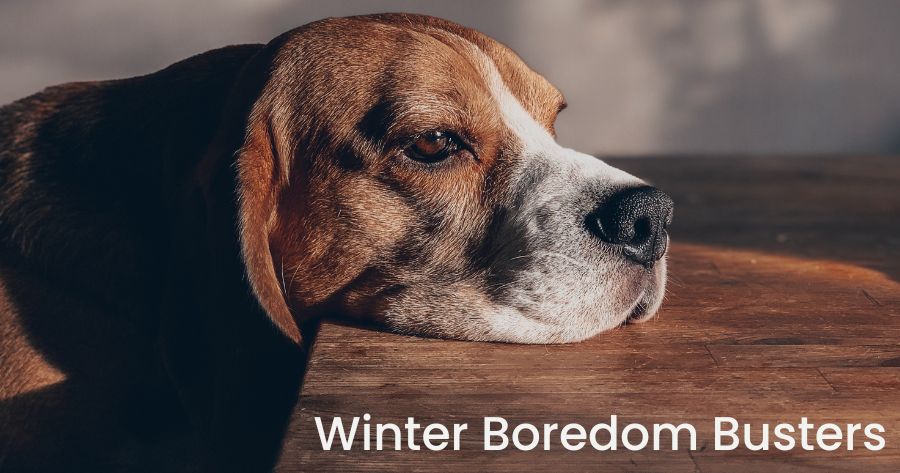
Dogs can sometimes display strange habits that leave pet owners puzzled, and one such behavior is eating dirt. While it may seem unusual or even concerning, there are several reasons a dog might engage in this activity. Some causes are harmless, while others might indicate an underlying issue that requires attention. If you've noticed your dog eating dirt, it's important to understand what might be driving this behavior and when it might be time to consult your veterinarian at Rockdale Animal Hospital.
There are several reasons your dog might be eating dirt, ranging from behavioral habits to potential health concerns.
If your dog's diet lacks essential nutrients like minerals, vitamins, or even fiber, they may instinctively seek out soil to fill that gap. This can be particularly common in dogs that are on a low-quality diet or one that doesn't meet their specific needs. Dogs require a well-balanced diet, and when they are missing out on key nutrients, they might turn to dirt in an attempt to compensate. The soil may contain trace minerals or salts that your dog is trying to consume to rebalance their body. If you suspect your dog’s diet could be lacking, speak with your veterinarian to ensure their nutritional intake is adequate for their breed, age, and activity level.
When a dog's digestive system is not functioning properly, they might attempt to eat dirt to alleviate the discomfort or help induce vomiting. This is a form of self-medication, where the dog is trying to soothe their gastrointestinal tract or purge something that’s causing distress. If your dog is eating dirt regularly and also showing signs of vomiting, diarrhea, or lethargy, it could be a sign of a more serious digestive issue that requires veterinary attention.
Sometimes, dirt eating is not linked to a physical condition but rather to behavioral or environmental factors. Here are some of the most common behavioral reasons why a dog might eat dirt.
Dogs lacking physical or mental stimulation may eat dirt out of boredom or anxiety. Without enough exercise or engaging activities, they can develop undesirable behaviors like dirt eating, which can also comfort anxious dogs. Increasing exercise, offering interactive toys, and using puzzle feeders can help reduce this habit. Addressing anxiety with positive reinforcement and a consistent routine may also curb the behavior.
Pica is a condition where dogs (and even humans) feel the need to eat non-food items, and it can be a possible explanation for why your dog is eating dirt. Pica can develop from a variety of causes, including stress, a compulsive disorder, or an underlying health condition. If you suspect your dog has pica, consult your veterinarian. They can help determine if there is an underlying cause that can be addressed or if behavioral modification techniques will help reduce this compulsion.
In some cases, the environment itself might be the trigger for a dog eating dirt.
Your dog may be attracted to the smell or taste of fertilizers, compost, or food waste in the dirt. If your yard contains chemical fertilizers, pesticides, or herbicides, your dog might ingest harmful substances. To protect them, limit their access to these areas and use pet-safe products in your garden. Be cautious about where your dog spends time, especially near construction sites, parks, or heavily landscaped areas.
Dogs are naturally curious creatures, and sometimes they eat dirt simply out of interest or to explore their surroundings. Puppies, in particular, use their mouths to learn about the world, and dirt is just one of the many things they may put in their mouths. While occasional dirt eating might not be a concern, it's important to watch for any signs that your dog is consuming large amounts of soil or doing so regularly, as this could lead to health problems such as blockages or digestive upset.
Eating dirt, particularly in large quantities or over an extended period, can pose several risks to your dog’s health. Being aware of these risks can help you decide if a trip to the vet is necessary.
While occasional dirt eating may not be a major concern, there are times when it’s important to seek veterinary advice. If your dog is eating dirt frequently or showing other symptoms like lethargy, vomiting, diarrhea, or a loss of appetite, it’s best to get professional advice. Additionally, if your dog’s dirt eating is linked to anxiety or another behavioral issue, your vet can recommend strategies to help manage the behavior. Contact Rockdale Animal Hospital at (770) 922-8600 if you’re concerned about your dog's health or if you want to schedule an appointment to discuss your dog’s behavior.


